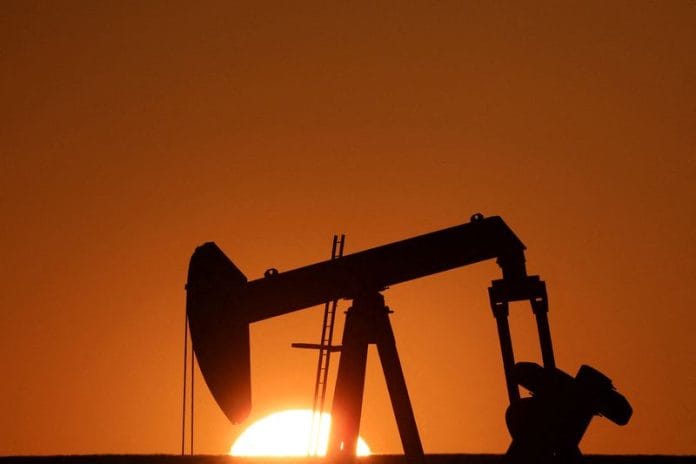By Shariq Khan
(Reuters) -Oil prices fell in volatile trading on Thursday, as a pledge from U.S. President Donald Trump to boost U.S. production reignited oversupply concerns, while fresh sanctions on Iranian crude kept the losses in check.
Brent crude futures fell 23 cents, or 0.3%, to $74.38 a barrel by 12:30 p.m. ET (1733 GMT). U.S. West Texas Intermediate crude was down 31 cents, or 0.4%, at $70.72.
Trump on Thursday repeated a pledge to boost U.S. oil production in order to lower commodity prices, saying the country will produce more oil than anyone has ever seen before.
Oil prices have tumbled by about 10% since January 15, five days before Donald Trump took over as U.S. President, with the marketed buffeted by rapidly changing tariff measures from the U.S. against its major trading partners.
Prices had briefly recovered on Thursday after the U.S. Treasury imposed new sanctions on individuals and entities in multiple jurisdictions for facilitating the shipment of millions of barrels of Iranian crude oil to China.
The move came after Trump earlier this week vowed to bring Iran’s oil exports to zero, part of U.S. efforts to stop Iran from obtaining a nuclear weapon.
“The notice is out – if you’re a refiner or shipper moving Iranian oil, any part of it, you’re at risk of getting whacked by the Treasury,” said Price Futures Group analyst Phil Flynn.
“Dealing with Iranian oil will be like Superman dealing with Kryptonite,” he said.
Oil prices were also supported by a decision by Saudi Arabia’s state oil company Saudi Aramco to raise its March crude prices sharply for buyers in Asia.
Prices of oil had plunged by more than 2% on Wednesday as a large build in U.S. crude and gasoline stockpiles signalled weaker demand, while investors also weighed up the implications of a new round of U.S.-China trade tariffs, including duties on energy products.
(Reporting by Paul Carsten in LondonAdditional reporting by Ahmad Ghaddar, Colleen Howe and Sudarshan VaradhanEditing by David Goodman and Susan Fenton)
Disclaimer: This report is auto generated from the Reuters news service. ThePrint holds no responsibility for its content.






